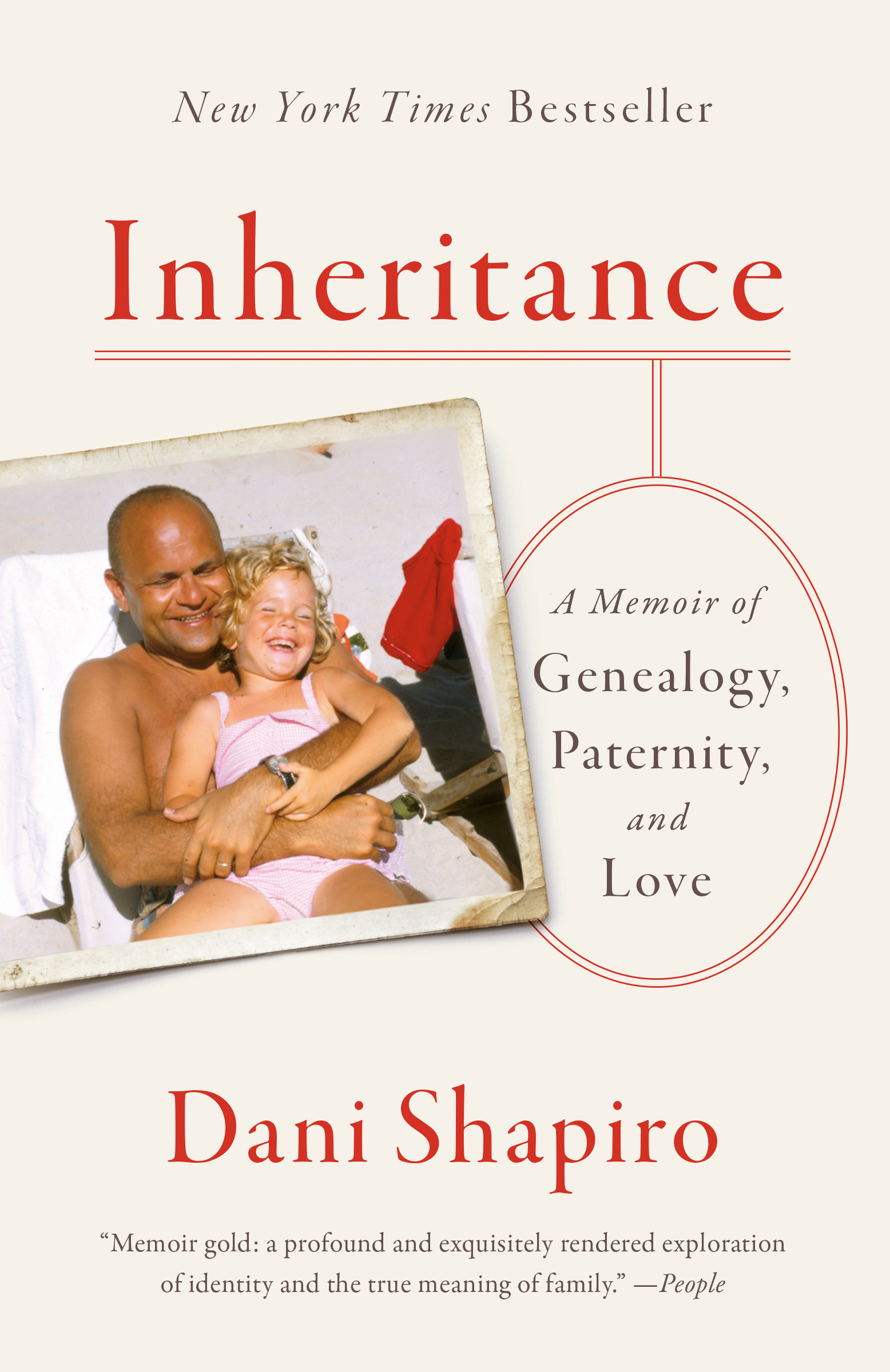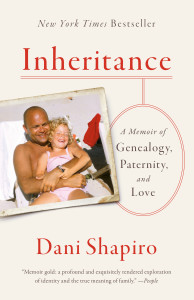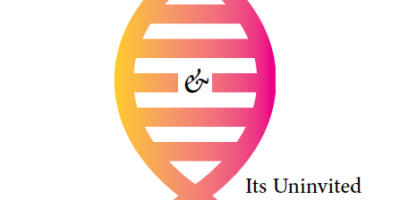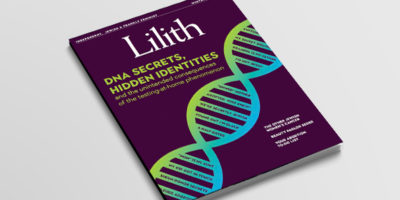
A Change, Inked: Dani Shapiro Reckons With a DNA Discovery
“Last spring I found out that my father was not my biological father,” I told him, keeping the story as brief as possible.
In this excerpt from her acclaimed memoir, Inheritance, Dani Shapiro describes her process of healing, and creating a new identity based on the discovery she made when she took a DNA test online.
 Three of us—my husband Michael, our attorney, and I—sat on a bench outside a probate judge’s chambers in a nondescript suburban Connecticut courthouse. The long carpeted corridor was silent and empty, lined in paneled wood. We had brought all the paperwork, and I hoped it would be in order: birth certificate, social security card, driver’s license, and an official petition to the court.
Three of us—my husband Michael, our attorney, and I—sat on a bench outside a probate judge’s chambers in a nondescript suburban Connecticut courthouse. The long carpeted corridor was silent and empty, lined in paneled wood. We had brought all the paperwork, and I hoped it would be in order: birth certificate, social security card, driver’s license, and an official petition to the court.
Reflexively I reached up and touched my left shoulder. It was still a bit sore. Two weeks earlier and three thousand miles away I lay on a metal table in Los Angeles, in the sun-drenched studio of the tattoo artist known as Doctor Woo. It was my first tattoo. That there is a prohibition against Jews getting tattoos was something I was acutely aware of, and yet that was a part of it as well. It was subversive, rebellious. I’m half Jewish, half something else. Why not allow that, announce that—be that? I’m a hybrid, made of two sets of ancestors who would never have crossed paths or sprung from the same village. I had decided on my shoulder—not a hidden place, a secret spot that only those most intimate with me would see. My shoulder was visible, if I wished it to be.
The following afternoon, I had an appointment with Rabbi David Wolpe, the Senior Rabbi of Sinai Temple in Los Angeles. I had long admired Wolpe for his brilliant and incisive thinking. I had already planned to wear a cardigan, to keep my transgression private. I was afraid he would judge me—I needn’t have been concerned. I would quickly come to realize that David Wolpe had no time to waste on antiquated propriety. “We all feel as if we’re other,” he told me. “Any thinking person knows we are other. Only you’ve actually been to the front lines of otherness. And you’ve come back with something to teach us.” As we sat in his quiet inner sanctum, he recited the words of Elizabeth Barrett Browning: “God answers sharp and sudden on some prayers, / And thrusts the thing we have prayed for in our face, A gauntlet with a gift in it.”
In that instant—my fresh tattoo hidden beneath my summer cardigan—I understood what the rabbi was offering. My newfound awareness was both gauntlet and gift. The choice wasn’t to see it as one or the other. It was to embrace it as both.
*
In Doctor Woo’s studio—a far cry from the hallowed halls of Sinai Temple—I explained my reason for wanting a tattoo to the artist. “Last spring I found out that my father was not my biological father,” I told him, keeping the story as brief as possible.
I wondered how many stories he heard every day—reasons people have for turning their bodies into canvases, vessels, statements of identity. The young donor-conceived people I had recently learned about had desperately, fruitlessly searched for their biological fathers, until they settled for a series of numbers—the donor ID—inked into their arms as if to say: this is all I know of who I am.
“I’d like a bird,” I told Woo.
“What kind of bird?” he asked.
His Instagram feed was full of birds: eagles, ravens, hawks. “I don’t want an angry bird,” I said.
Woo began to sketch on a piece of paper.
“Not a fierce bird,” I went on. “And not a hummingbird.” Michael had pointed out to me that hummingbirds hover.
I wanted one that soared.
“Maybe a swallow,” he said.
“Maybe. A sweet bird.” My eyes stung. “A free bird.”
On the table, as Doctor Woo began needling the bird into the front of my shoulder, I hardly felt a thing. It was as if I were floating, suspended somewhere in the in-between.
Uk’shartam l’ot al yadecha v’hayu l’totafot bein einecha. I heard the words of the central prayer V’ahavta as if they were being chanted beside me. Take to heart these instructions with which I charge you on this day. Impress them upon your children . . . Bind them as a sign on your hand and let them serve as a symbol on your forehead. I had been raised with the powerful idea that we must show the world who and what we are. We must keep mezuzot on our doorposts, and men must wear yarmulkes on their heads. I closed my eyes as Doctor Woo continued to make me my own sign, incorporating tiny compasses, and two faint circles— hints of direction—around the swallow’s beak.
Migratory birds have internalized compasses; they use earth’s geomagnetic field—along with light, stars, and other cues—to guide them as they fly. For the rest of my life, I wanted a visual reminder that now I had my own internalized compass. I knew what and who I was. Now, the map was mine.
*
The judge at the Probate Court of the State of Connecticut was finally ready to see us. We all sat around a conference table, and my attorney distributed his prepared documents. The judge, wearing a suit, asked me to raise my hand and recite an oath. Then he asked why I had petitioned the court to change my given name.
“Because I hate it,” I said. “Because no one can pronounce it or spell it. Because I’ve never answered to it.” Which wasn’t entirely true, of course. I had painful proof that I once had answered to it.
I signed the papers in front of the judge, county clerk, my attorney, and Michael. The document was then stamped with an official seal. An undoing. The little girl with the unpronounceable name who stared and stared at her face in the mirror, trying to understand what she was seeing, was finally a grown woman who knew who she was and where she came from. Daneile was the name that had been handed me along with so many other mysteries of my existence. But I didn’t have to be stuck with it. This was something I could let go.
“Your name is now legally Dani Shapiro,”said the judge. “Just like that?” I asked.
Somehow I thought it would take longer to unravel something that had identified me for a lifetime. I hadn’t understood that at that very moment, my given name would fall away, fly off like the swallow on my shoulder. Two weeks earlier I had reclaimed my body. Now I was reclaiming my name. Later, I will change all of my documents of identification save one. My birth certificate will remain the same. Daneile, daughter of Paul. In Hebrew that would be Daniela bat Pinchas. That piece of history, more true than not, can never be altered.
From INHERITANCE by Dani Shapiro. Copyright © 2019 by Dani Shapiro. Reprinted by permission of Anchor Books, an imprint of the Knopf Doubleday Publishing Group, a division of Penguin Random House LLC.”



